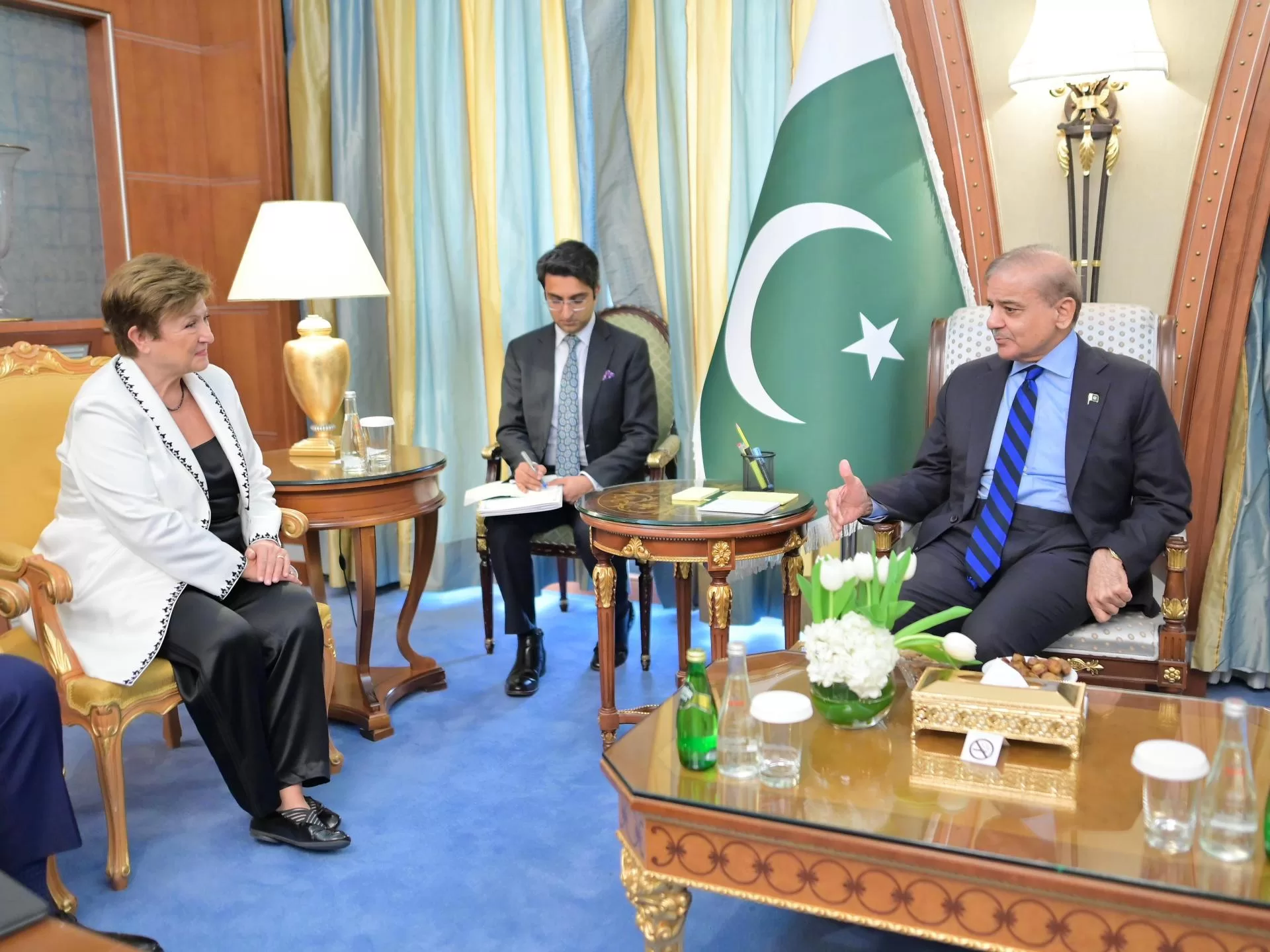Late on Monday night, Pakistan’s Ministry of Finance and the IMF confirmed that the lender had approved the “immediate disbursement” of a $1.1bn tranche that completes a total loan of $3bn agreed to under a deal inked last year.
But the approval came with firm words from the IMF. “To move Pakistan from stabilization to a strong and sustainable recovery the authorities need to continue their policy and reform efforts, including strict adherence to fiscal targets while protecting the vulnerable; a market-determined exchange rate to absorb external shocks; and broadening of structural reforms to support stronger and more inclusive growth,” the organisation said in a statement.
The bailout announced on Monday followed a meeting between Pakistani Prime Minister Shehbaz Sharif and IMF Managing Director Kristalina Georgieva, on the sidelines of the World Economic Forum meeting in Riyadh on Sunday.
Sharif’s government had sought a new IMF deal after the current $3bn standby arrangement (SBA) with the global lender expired on April 11.
Pakistan has been reeling from a severe economic crisis for more than two years, with its inflation at one point shooting up to nearly 38 percent and its foreign currency reserves depleted to $3bn in February 2023, enough to cover less than five weeks of imports.
In June last year, Sharif was able to avoid a sovereign default when he secured the IMF bailout, pushing the current forex reserves to almost $8bn, according to the latest central bank data.
Khaqan Najeeb, a former adviser to the Finance Ministry, told Al Jazeera the performance of Pakistan’s $350bn economy in the past nine months has shown that the country’s meagre foreign reserves have increased and that inflation, which was at 20 percent in March, has reduced, though slowly.
“Broadly, we can define Pakistan’s economic situation as macro-stabilisation, which is a consequent effect of adjustment policies, but it also means that growth is expected to remain slow and hover around 2 percent,” he said.
Leading Pakistani economist Kaiser Bengali, however, had reservations about the economic outlook as he questioned the sustainability of the current policies, wanting to see more structural reforms.
Bengali called the current economic indicators a “mirage”, adding that the perceived stability was due to the prospect of more loans coming in.
“If the so-called stability was due to a rise in exports or better inflow of dollars, that would have been meaningful but that is not happening. What we are seeing right now is a temporary situation, where the market is responding to day-to-day information,” he told Al Jazeera.
“The economy cannot run on merely an inflow of loans. How will we repay all our [existing] loans?”
Pakistan’s external debt obligations currently stand at more than $130bn, with Lahore-based economist Hina Shaikh fearing the current policy of using more debt to address fiscal deficit will create more inflation.
“Without a commitment to initiate reforms that rationalise expenditures and expand the tax net to increase tax revenues, the macroeconomic situation will not change much. Unless more goods are produced and there is real growth – that is exports see a boost, manufacturing takes place, there are productive employment opportunities – inflation will remain on the rise,” she told Al Jazeera.
Bengali said recent Pakistani governments had a single-point agenda of figuring out “where to get new loans to pay the past loans”.
“Public sector development has been left behind. In the last four decades, there has barely been any major project for health, education or housing,” he said.
Najeeb, the former government adviser, said the main challenge for the country in the coming days was to put together a framework that could result in growth “based on productivity and investment”.
“We must remember that Pakistan already owes them [IMF] $7bn,” he added.
Bengali signed off with a warning: Even the IMF could be reluctant to put in large sums of money to help Pakistan come out of its financial crisis.
“No bank will give you loans indefinitely, especially when they see a deteriorating balance sheet,” he said.
